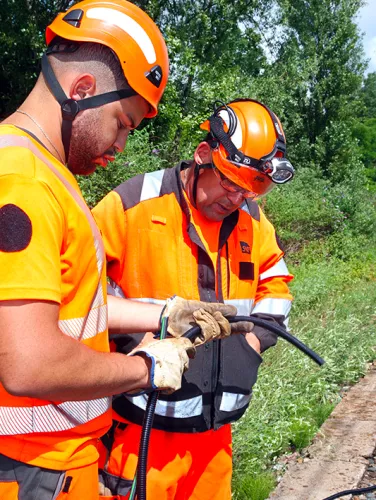A real national and regional economic impact
SNCF Réseau is a company with strong roots in the national economy, particularly through its close links with its suppliers and partners. In 2024, we purchased €6.3bn worth of services. 97% of our suppliers are companies located in France, all over the country.





